Eden Farm is located in Athens, which always gets responses of “huh?”, so I usually have to add “north of Skowhegan”. I grew up here, and while I spent some time living away from here while at the University of Maine, this has always been home. My (then future) husband and I moved back to town and bought a piece of my grandparents’ former farm (I grew up on their dairy). We’ve since made many improvements to the land, including building a home and multiple barns. I love Athens because it is so community oriented. It is not perfect, but the people here love and support one another. I attended (and later taught at) the Pre-K-8th grade school in town, and the kids I went to school with are like siblings to me. Though we may not see each other frequently, we’re always there for one another and forever connected.
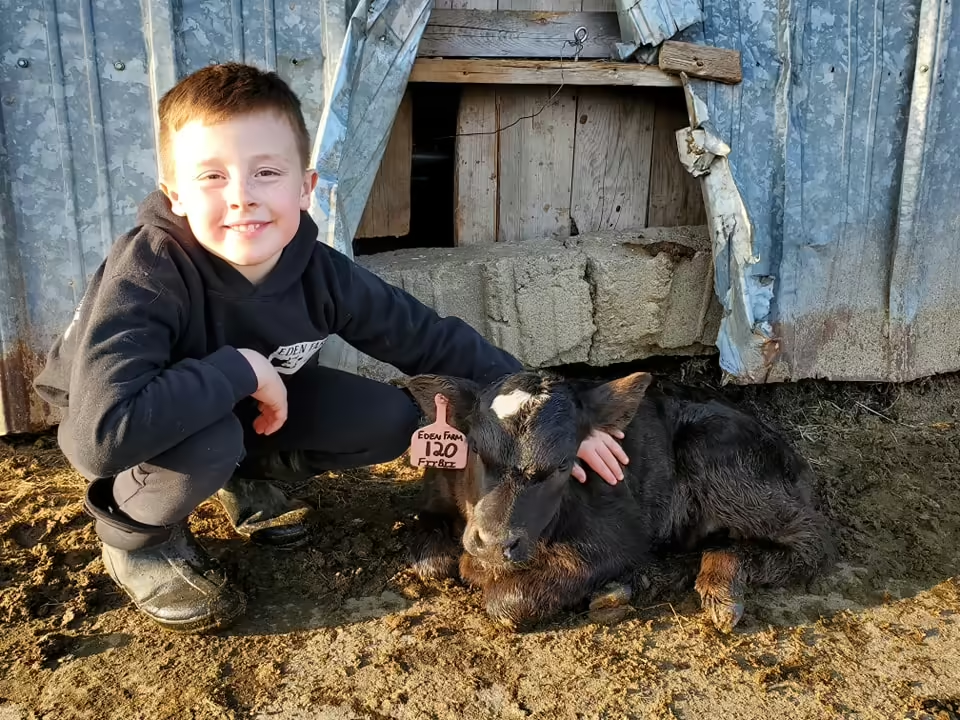
I love the rural nature of our town (though I wouldn’t mind living even further away from “town”), but appreciate that several well-traveled routes run through, allowing local businesses to benefit, including ours. Our property is surrounded by forest on two sides, and the peacefulness of the woods is just incomparable. Though the soil is “bony” (rocky) as my dad says, it is wonderfully fertile and we have improved on that even more with soil management.
I don’t remember a time when cattle weren’t a part of my life, and I don’t anticipate that ever being the case. I grew up on my grandparents’ dairy farm. They also had a small herd of beef cattle and allowed my sister, cousins, and I to get goats for 4-H projects. I participated in 4-H for ten years where I showed beef and dairy cattle along with the goats. I learned so many valuable skills in my life on the farm, from veterinary knowledge to financial understanding to the character building that is inevitable with the raising of livestock. Though my grandparents sold their farm after my grandfather experienced a number of health issues in the early 2000s, they elected to keep a small herd of beef cattle for me to start my own farm with when I finished college. I came home periodically to visit with and maintain my herd, and my grandfather was able to keep a part of that lifestyle that had been so important to him by taking care of their daily needs.
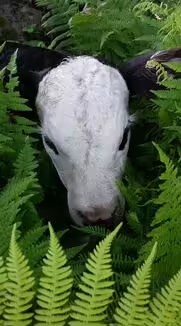
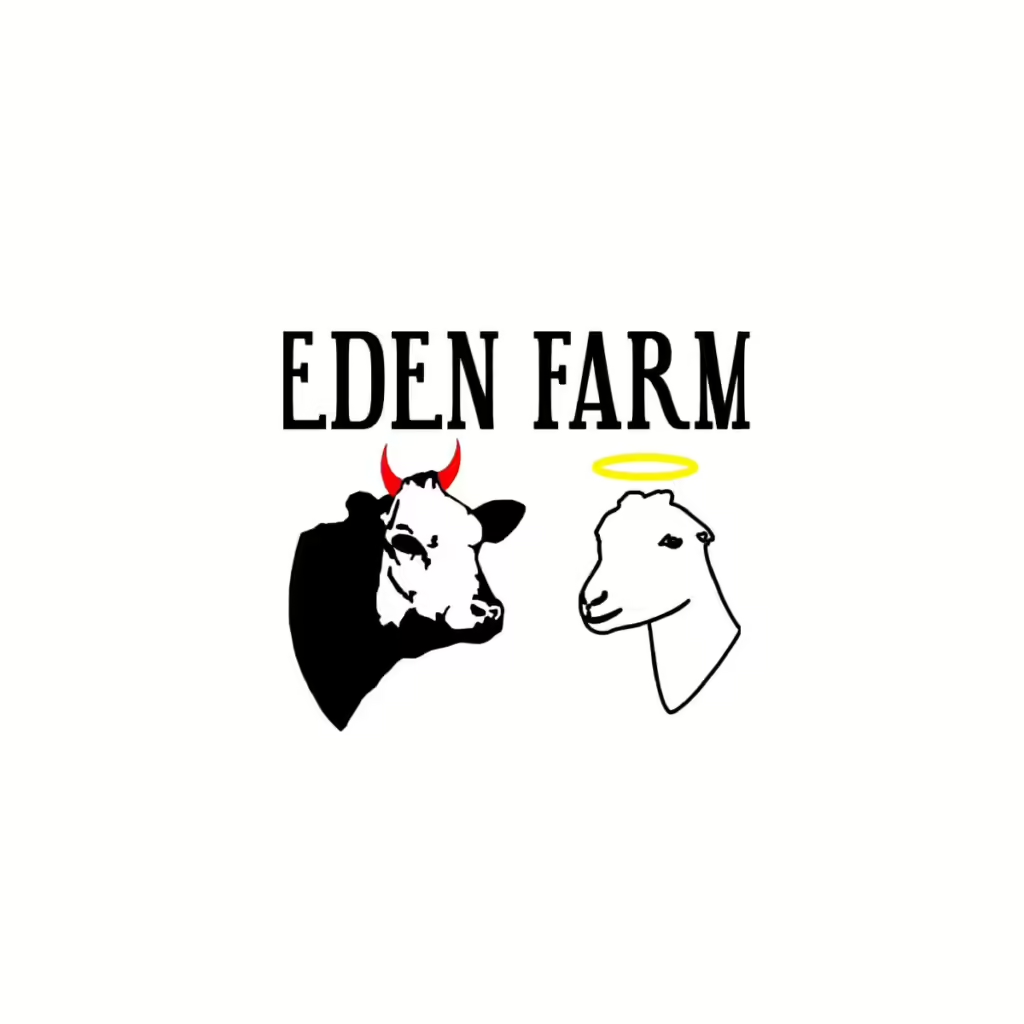
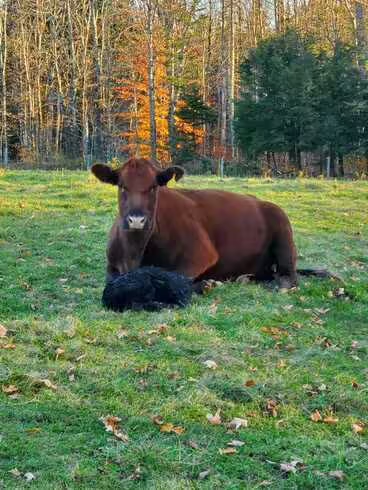
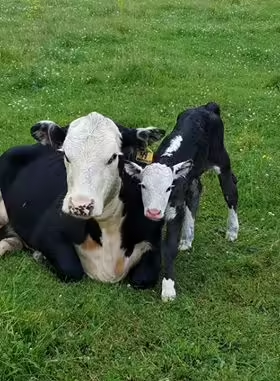
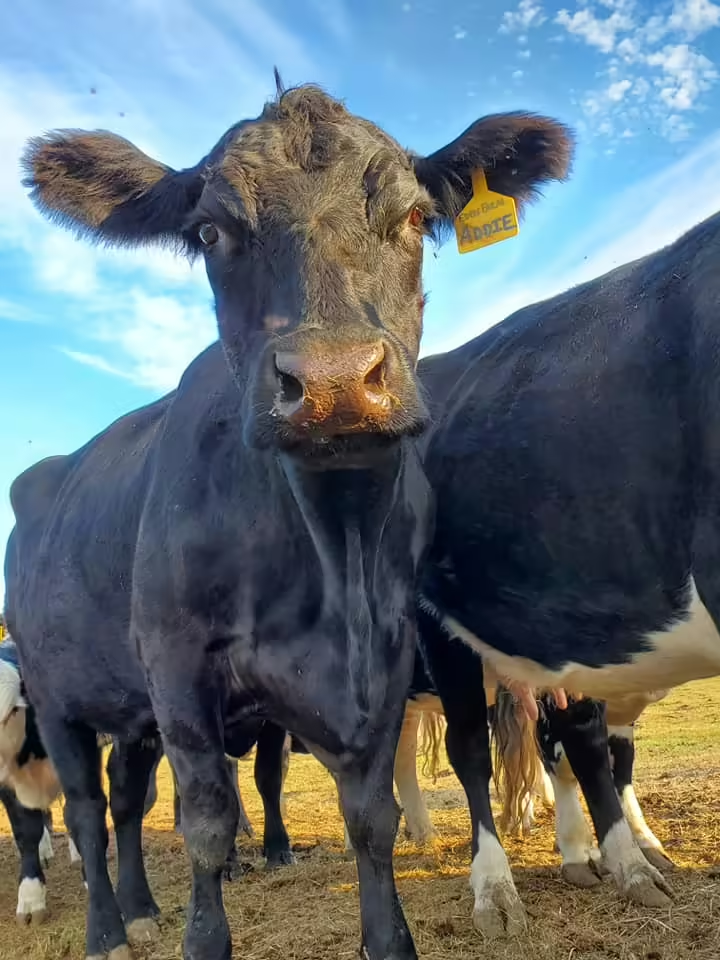
During college, I spent four years as a student field worker at the J.F. Witter Teaching & Research Center dairy, where I gained even more hands-on veterinary and cattle management experience. I milked cows before and after classes and in the summer, kept records, assisted the farm manager with office tasks, gave tours, and was involved in youngstock care. I wanted so desperately to do what my grandparents had done, to run a dairy with a small beef herd, but reality set in and it just wasn’t possible to operate with the small-scale herd I envisioned in that time and place. I decided to focus on a grass-fed beef herd, which would require a miniscule start-up investment in comparison, and find off-farm employment in the meantime.
When I graduated from the University of Maine in 2011, my husband and I returned home, where we purchased our land, bought 7 more beef cows to add to the 4 my grandfather had curated for me. I can’t begin to tell you how special it was to start my own herd with the same genetics I had cultivated in years of 4-H. My new herd was made up of my former show cows originating from my grandparents’ Angus herd. We began with a direct-to-consumer beef operation, but after a few years and running the numbers, it made more sense for us to transition to a feeder calf operation. We have done that for the past several years, selling around 20 calves a year to local farms with direct-to-consumer beef businesses like we had, and selling a small amount of beef ourselves. Our numbers typically ran from 25-40 head, depending on the time of year and when we calved.
Along the way we added a goat dairy, Muscovy ducks, hay, and a farm stand to our operation. However, it got to the point this spring that I had to make some decisions about what we were going to focus on if we were going to continue to be successful. We came to the decision that it was time to downsize the cattle, and we are in transition right now. I will never not have cows, so we are not dispersing, just moving away from our feeder calf operation. We will continue to maintain a herd of <10 and sell a few calves each year (our longest-term buyer is staying with us) and sell beef locally. This allows us to divert our labor to where it is most profitable, which at this time is towards our goat dairy and herd.
Still, despite a smaller herd size, the cattle continue to be a key aspect of our family farm. Rotational grazing allows us to manage our pasture most effectively and maintain soil health. Cattle and goats work surprisingly well together. Not in the sense that we mix herds, because we definitely don’t, but they mesh well in our situation. The cattle clean up waste hay from the goat pens, and provide key nutrients for our hay fields. I have raised numerous calves on excess goats’ milk! The cattle clean up garden waste, not only from our plot, but from our neighbors as well, and we will continue to sell beef locally.
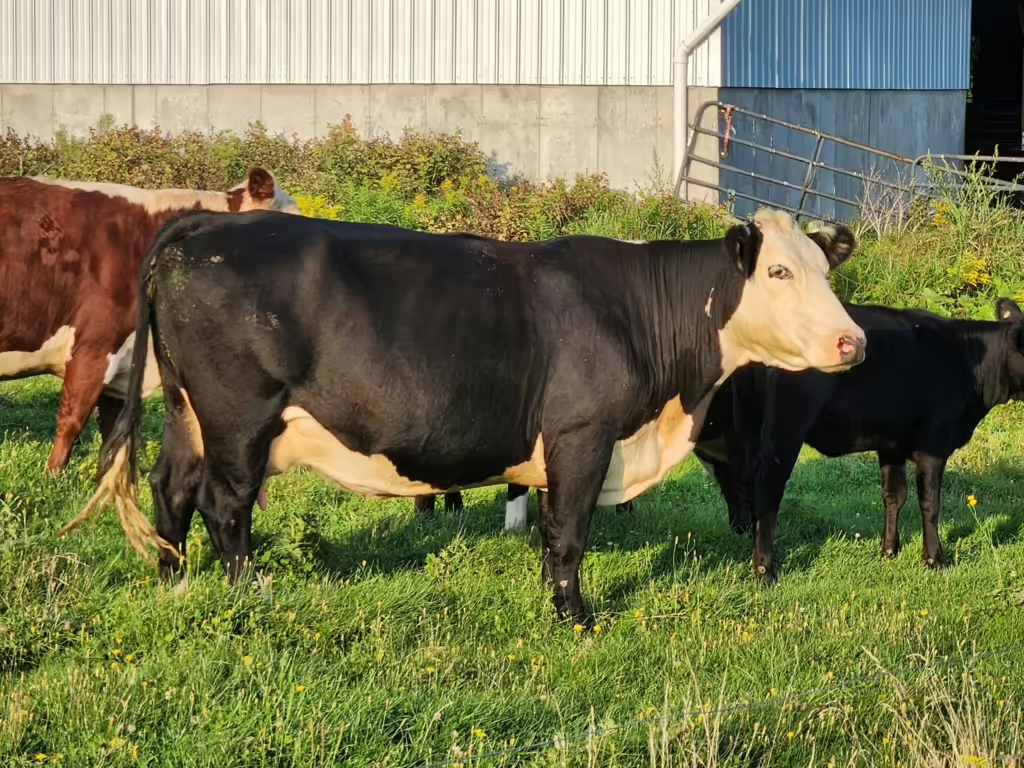
There are many ups and downs to farm life, and sometimes you are going up and down several times in a day! I’ll start with the downs so we can end on a positive note! Obviously, death is the biggest “down”. If you have livestock, you will have dead stock, as they say. Some of the hardest losses are the unexplained ones, because I am science-brained and like to know the “why”. Sudden losses also hit hard, such as this spring when we had a cow get hip locked while calving with a calf that had been dead for some time.
I consider myself fairly skilled when it comes to birthing, and we exhausted every option we had to no avail. We had to make the decision to put the cow down, not only because it made financial sense (unfortunately that is a consideration in this career path), but because there was nothing else to do, and she would continue to suffer and likely die anyway. Having these decisions 100% up to you without someone else to tell you the “right” thing to do takes a toll, even when you know in your heart you did what was best. With so many factors left up to nature, while farming you often find yourself trying your best and still failing, but you have to live with that and get up the next day (at a very unreasonable hour) and do it all over again.
Fortunately, farming brings me a lot of “ups” to tip the scale in the other direction. I get so much joy from spending my days working with animals and caring for them, helping them to grow and be beautiful and productive. Interacting with them brings so much positivity to the day to day. The little “wins” sometimes turn into big wins. For example, last year I had a calf that broke her leg. Of course, it was a family favorite and one of the few that we had planned to retain as a replacement heifer. Working with our vet, we were able to splint and cast it. Not only did she survive, she thrived.
As I said, we sell beef locally in addition to our dairy products, hay, and quality stock, direct to our customers and at our farm stand that is open seasonally, Thursday-Sunday on the Brighton Road in Athens. You can reach out to me by email at LoveMoo11@gmail.com
Eden-Made Freelance Services: eden-made.weebly.com
www.facebook.com/EdenFarmGrassFed
Instagram @eden.made.maine
(207) 399-8219